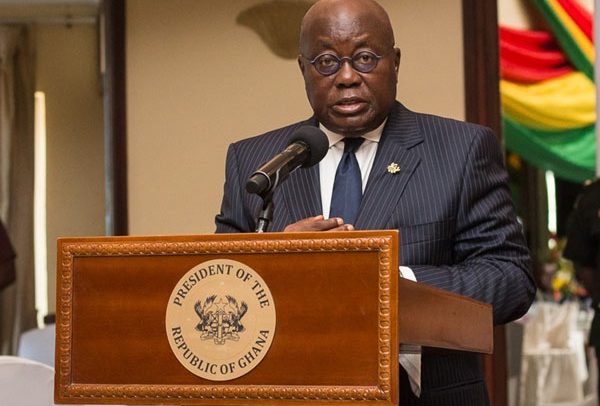President Nana Akufo-Addo
Euromoney, a UK-based magazine, has said “Ghana is riding the waves of global approval” as one of the safest investment countries in Africa.
It said Ghana gained risk points and had moved up eight places in the global rankings ahead of elections on December 7.
Besides, the UK magazine said the Akufo-Addo-led New Patriotic Party (NPP) was more attractive than the John Mahama-led National Democratic Congress (NDC).
According to the magazine, even though the shock of Covid-19 has weighed on Ghana’s macroeconomic indicators, softening GDP growth and widening the fiscal deficit, the country remains one of Africa’s successes.
“In April, the IMF predicted the country’s GDP would grow in real terms by just 1.5 per cent this year, before picking up pace again in 2021. The current account was seen temporarily widening to 4.5 per cent of GDP, and the fiscal shortfall to 10 per cent of GDP,” it noted.
With the world crisis worse than envisaged, the UK magazine said Ghana had performed admirably in recent years and there was no reason it should not do so in future, considering its political strengths, which are largely responsible for the improvement in Euromoney’s country risk survey this year.
Durable Stability
“Ghana seems to have achieved relatively durable political stability, especially following the many years of political instability (coups) in the 1970s,” it stated.
“Whereas many countries have been downgraded by analysts, Ghana is one of Africa’s successes, gaining risk points (implying it is safer), and moving up eight places in the global rankings to 75th from 174 countries, making it the fourth safest investment on the continent behind Botswana, Namibia and the Seychelles.
“That means Ghana is on par, on investor risk terms, with Russia and Mexico, two countries with higher credit ratings but also becoming riskier in Euromoney’s ‘crowd-sourcing’ survey of economists and other risk experts, and a safer bet than South Africa, which is now around two points worse off, ranking 83rd,” it stated.
Handling Covid-19
The UK magazine quoted Professor Augustine Fosu at the Institute of Statistical, Social and Economic Research (ISSER), University of Ghana, as saying the government had handled the Covid-19 situation quite well through a measured lockdown.
“Naturally, the economy will be affected, but Ghanaian authorities and multilateral lenders have stepped up to provide considerable support. The Bank of Ghana too has responded by lowering its monetary policy interest rate, its reserve requirements for banks and specialised deposit-taking institutions and commercial banks’ capital buffers among other measures to ease liquidity strains,” the magazine pointed out.
It indicated that Professor Fosu also drew attention to Ghana’s adequate performance since the economic reforms of the 1980s, which had led to the country being selected as a role model for development success in Africa.
“Also Ghana is a standout because its political risks are low by regional standards and have continued to improve. This year, all six political risk indicators have ameliorated, notably the information access/transparency and government stability factors, despite the onset of elections towards the end of this year,” it indicated.
The magazine also quoted Prof. Fosu as saying, “There have also been active attempts to obviate violence during elections, despite the usual fierce contests between the two leading parties.”
Investor Friendly
It said investors could not overlook the fact that democracy was rated highly in Ghana and that an investor-friendly regime would be preserved whichever party won the forthcoming general election scheduled for December 7.
December Election
On the December 7 general election, the magazine noted that President Akufo-Addo and the NPP seemed more attractive to younger voters as opposed to his predecessor, ex-President John Dramani Mahama, and the NDC that were favoured by older voters.
It indicated further that the NPP flagbearer had continued with his predecessors’ affordable housing project and hospital building and was promising more industrialization as well as compensation for investors in failed financial institutions in an effort to encourage voters to entrust him with a second term.
“It might just work, but analysts are not overly concerned. Ghana’s political risks are not about to spike and its diversified international markets and commodity export base, which includes oil, gold, cocoa and timber among its prized resources, makes it an attractive market.
“Indeed, as Ghana’s risks have eased consistently for many years, it only serves to underscore the fact that where political and social stability is assured, it is often associated with decent long-term returns,” the magazine concluded.
By Ernest Kofi Adu


